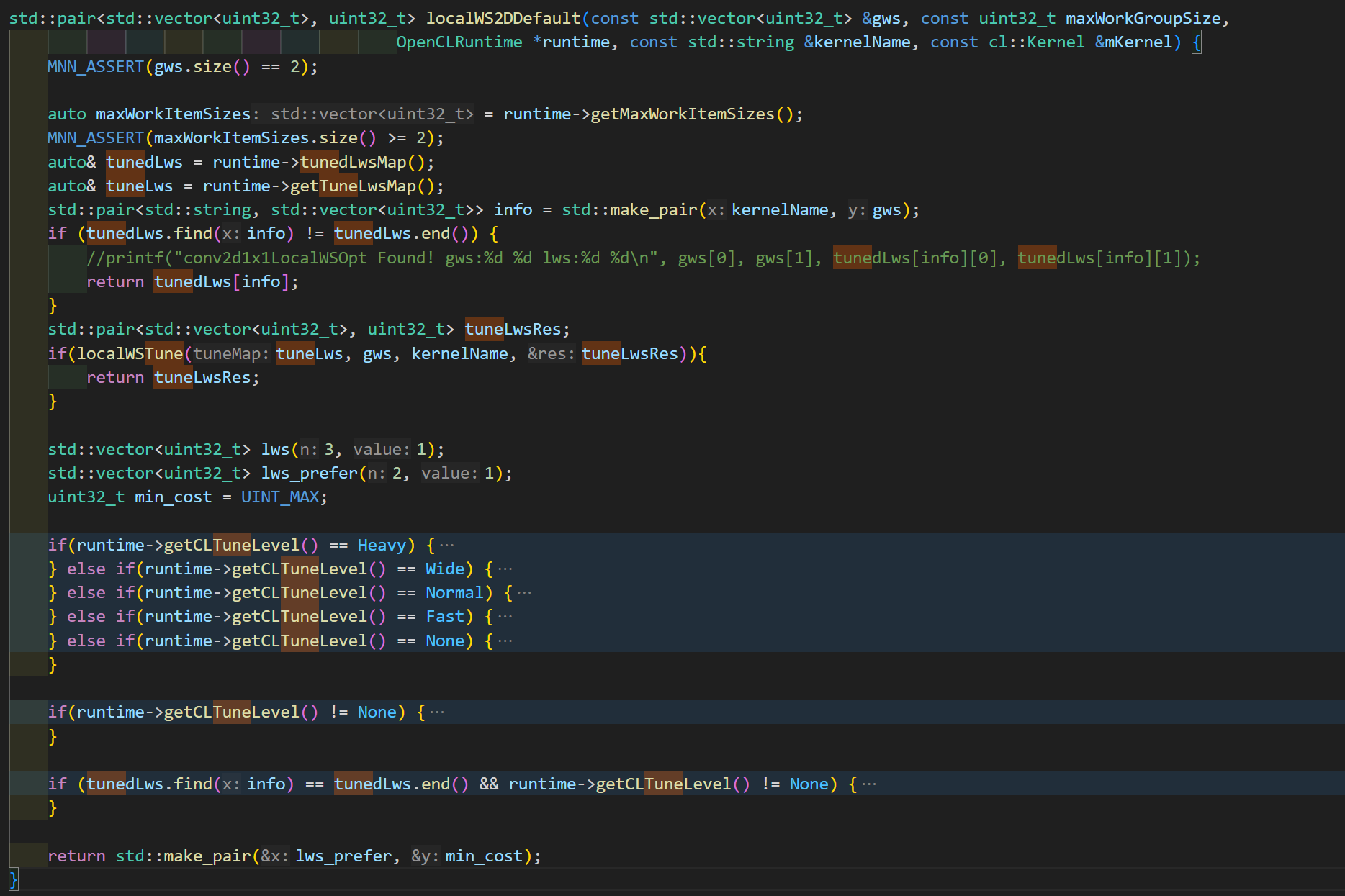1
2
3
4
5
6
7
8
9
10
11
12
13
14
15
16
17
18
19
20
21
22
23
24
25
26
27
28
29
30
31
32
33
34
35
36
37
38
39
40
41
42
43
44
45
46
47
48
49
50
51
52
53
54
55
|
static Execution* _createUnit(const Tensor* input, const Tensor* output, Backend* backend,
const Convolution2D* conv2d, const float* originWeight, size_t originWeightSize, const float* bias, size_t biasSize, std::shared_ptr<ConvolutionCommon::Int8Common> weightQuantInfo, bool supportSparse) {
auto cpuBackend = (CPUBackend*)backend;
#ifdef MNN_LOW_MEMORY
bool lowMemory = cpuBackend->memoryMode() == BackendConfig::Memory_Low;
#else
bool lowMemory = false;
#endif
auto common = conv2d->common();
#ifdef MNN_USE_ONEDNN
return OneDNN::createConvolution(common, backend, originWeight, originWeightSize, bias, biasSize);
#endif
#ifdef MNN_USE_SPARSE_COMPUTE
if (conv2d->sparseParameter() && nullptr != weightQuantInfo.get()) {
if (supportSparse) {
return new SparseConvolutionTiledExecutor(common, backend, weightQuantInfo->quan,
conv2d->sparseParameter(), bias, biasSize);
}
}
#endif
bool fastWay = common->kernelY() == 1 && common->kernelX() == 1
&& output->width() == input->width() && output->height() == input->height()
&& common->strideX() == 1 && common->strideY() == 1;
if (lowMemory) {
if (fastWay && nullptr != weightQuantInfo.get()) {
return new ConvolutionHybrid(common, backend, originWeight, originWeightSize, bias, biasSize, weightQuantInfo);
} else {
return new DenseConvolutionTiledExecutor(common, backend, originWeight, originWeightSize, bias, biasSize, weightQuantInfo);
}
}
if (fastWay) {
return new Convolution1x1Strassen(common, backend, originWeight, originWeightSize, bias, biasSize, weightQuantInfo);
}
if (originWeightSize == 0) {
return new DenseConvolutionTiledExecutor(common, backend, originWeight, originWeightSize, bias, biasSize, weightQuantInfo);
}
if (!ConvolutionWinogradBridge::canUseWinograd(common)) {
return new DenseConvolutionTiledExecutor(common, backend, originWeight, originWeightSize, bias, biasSize, nullptr);
}
PerfConfig convPerfconfig = DenseConvolutionTiledExecutor::bestTileConvolutionConfig(common, input, output, cpuBackend->threadNumber(), backend);
auto winogradConfig = ConvolutionWinogradBridge::bestWinogradUnit(common, input, output, cpuBackend->threadNumber(), backend, convPerfconfig);
if (winogradConfig.unit <= 1) {
return new DenseConvolutionTiledExecutor(common, backend, originWeight, originWeightSize, bias, biasSize, nullptr);
}
return ConvolutionWinogradBridge::createWinogradImpl(common, input, output, backend, originWeight, originWeightSize, bias, biasSize,
winogradConfig);
}
|
